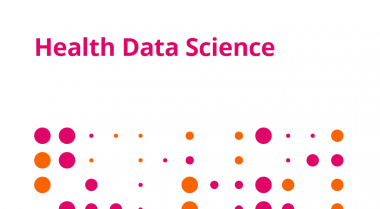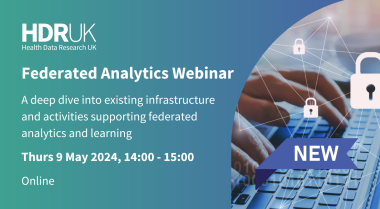Building "One Institute" without any walls
18 June 2019 | Author: Rhoswyn Walker, Director of Strategy, HDR UK
When you are a national organisation spread across all 4 nations of the UK, how do you build “One Institute”? We make really good use of digital tools, using tools like Slack and v videoconferencing as much as possible. But sometimes there is nothing better than getting together, and one year after the HDR UK’s operations kicked-off, we did exactly that. 190 HDR UK researchers, fellows, technologists, professional delivery leaders and members of our Public Advisory Board came together for the HDR UK annual community get-together.
The plan was to share what we were doing, concentrate our collective brain-power on some of the “knotty-problems” we are aiming to address and get to know each other a little better. The Wellcome Genome Campus provided a wonderful setting, although the wet weather prevented any outdoor networking (lucky we decided against any outdoor team building!).
Andrew (Morris – HDR UK Director) kicked-off the day in his typical charismatic style, reminding us that team-science, transparency and sharing are fundamental to achieving HDR UK’s ambitious scientific goals, while reminding us of some of the highlights of HDR UK’s first year.
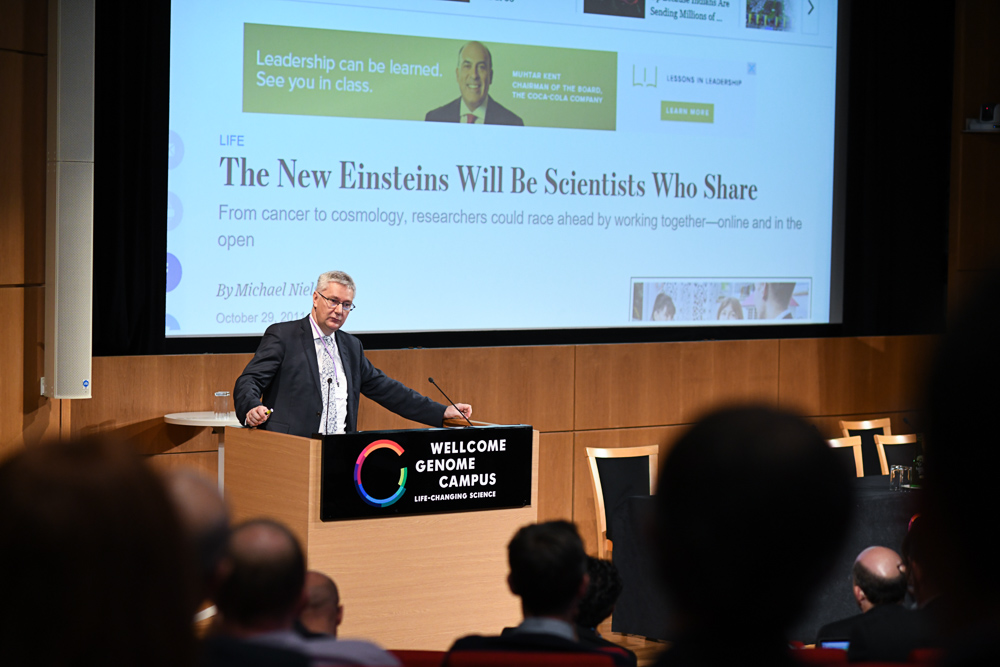
Professor George Davey Smith, University of Bristol, shared his important insights into some of the statistical challenges of using large scale data for causal explanation, prediction and description. Avoiding collider bias was a take-home message, as well as a prescient reminder from 1972 that “The computer is merely a device for storage, retrieval, quantification, and display of the data needed for decisions” (Feinstein AR et al. Estimating Prognosis with the Aid of a Conversational Mode Computer Program. Ann Intern Med 1972;76:911 921). Although this is also a timely reminder of the some of the challenges of open research – unfortunately, even after 47 years – this publication is still behind a paywall! An excellent talk to set us up for the day, which generated much interest from our statistical and computational colleagues in the audience.
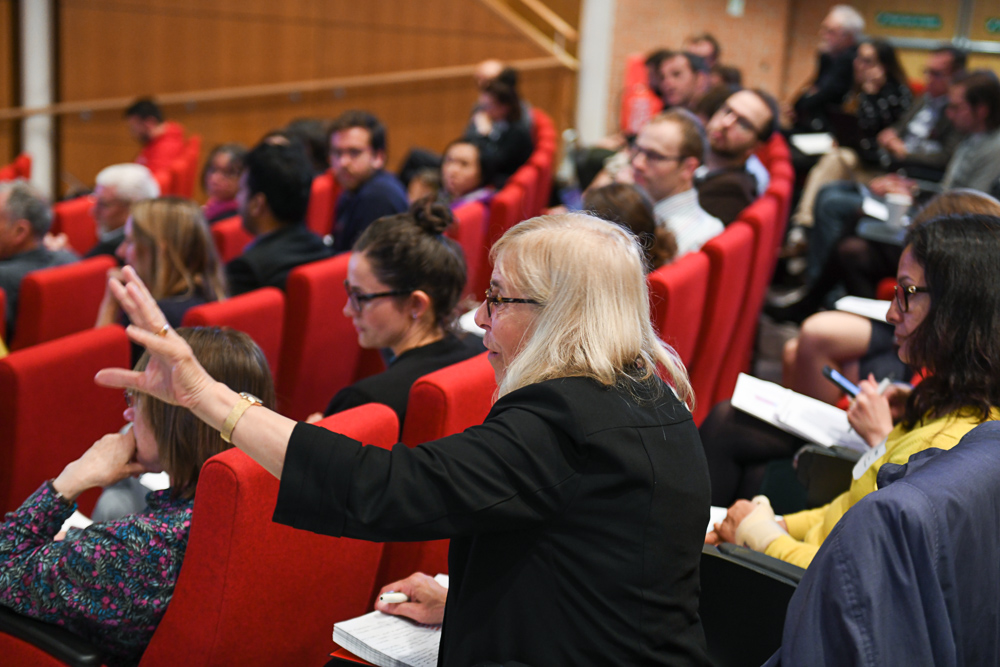
We once again benefited greatly from the advice of our Public Advisory Board members, who reminded us about the importance of communication, and setting-out really clearly the vital work we are doing to benefit the health of generations to come. And then on to the business of the day, 16 parallel breakout groups, coming together to discuss everything from HDR UK’s strategy for ensuring that smartphone and wearable device data can be harnessed for research and public benefit; to cross-sectoral (beyond health) data linkage; to integrative modelling techniques for multi-omics data integration – with some great live Google Docs editing on show.
Following a bit of speed-networking (lesson learnt – Gabriella’s skills extend to excellent time-keeping!), we ended the day with a reminder from Caroline Cake, HDR UK Deputy Director, about our One Institute values and the importance of the way we work with Transparency, Optimism, Respect, Courage and Humility.
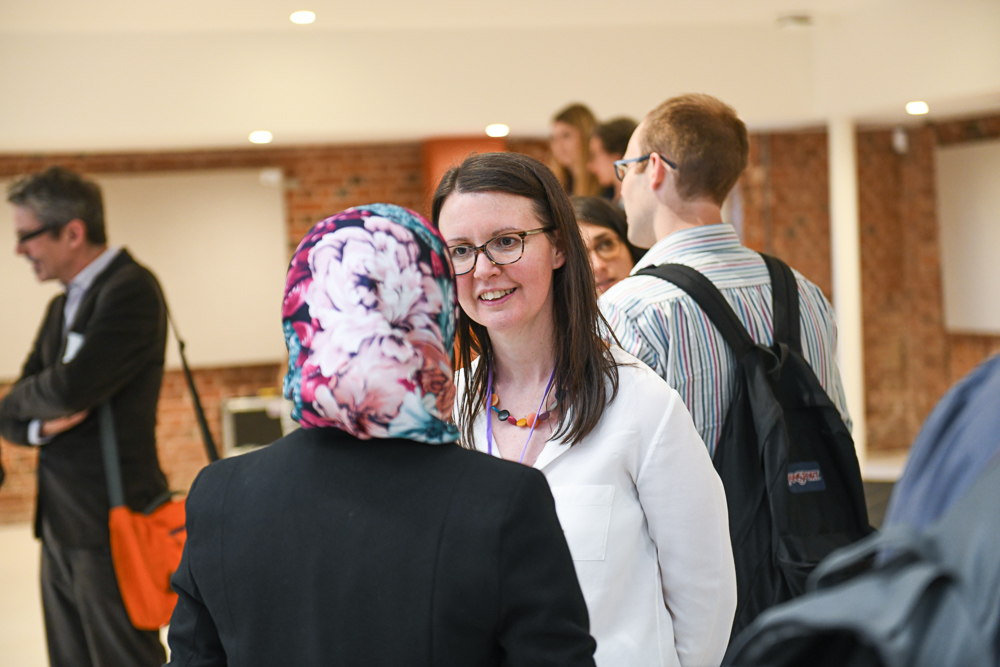
It was a great day, with a true sense of community, which is remarkable given the range of new team members, diverse disciplines and geographies that we had under one roof. People who had only seen their names on emails or websites before met for the first time and I very much hope that everyone went away excited by opportunities for new partnerships and energy to deliver exciting research, at scale, across the UK.
Not satisfied with one day of inspiring discussions, many HDR UK colleagues stayed at the Wellcome Genome Campus for the inaugural Health Data Science Conference held at Hinxton, expertly organised by Professors Caroline Relton, Cathie Sudlow and John Danesh. It was a privilege to learn from international experts, with inspiring talks provided by Teri Manolio, Brent Richards, and Calum MacRae to name but a few. It was great to see, possibly for the first time, a conference with a truly representative audience – with near equal representation across the maths, statistics, computational and health domain specialists. Some great “lightning talks” – 36 talks in 36 minutes – showed the strength and diversity of expertise in the room. The take home message for me was that the UK has a great opportunity to push the frontiers of health data research, which is the envy of our international colleagues. But the challenge is not small: we need to keep moving fast and, most importantly, together to unlock new opportunities to unite diverse data to make discoveries that improve people’s lives.

